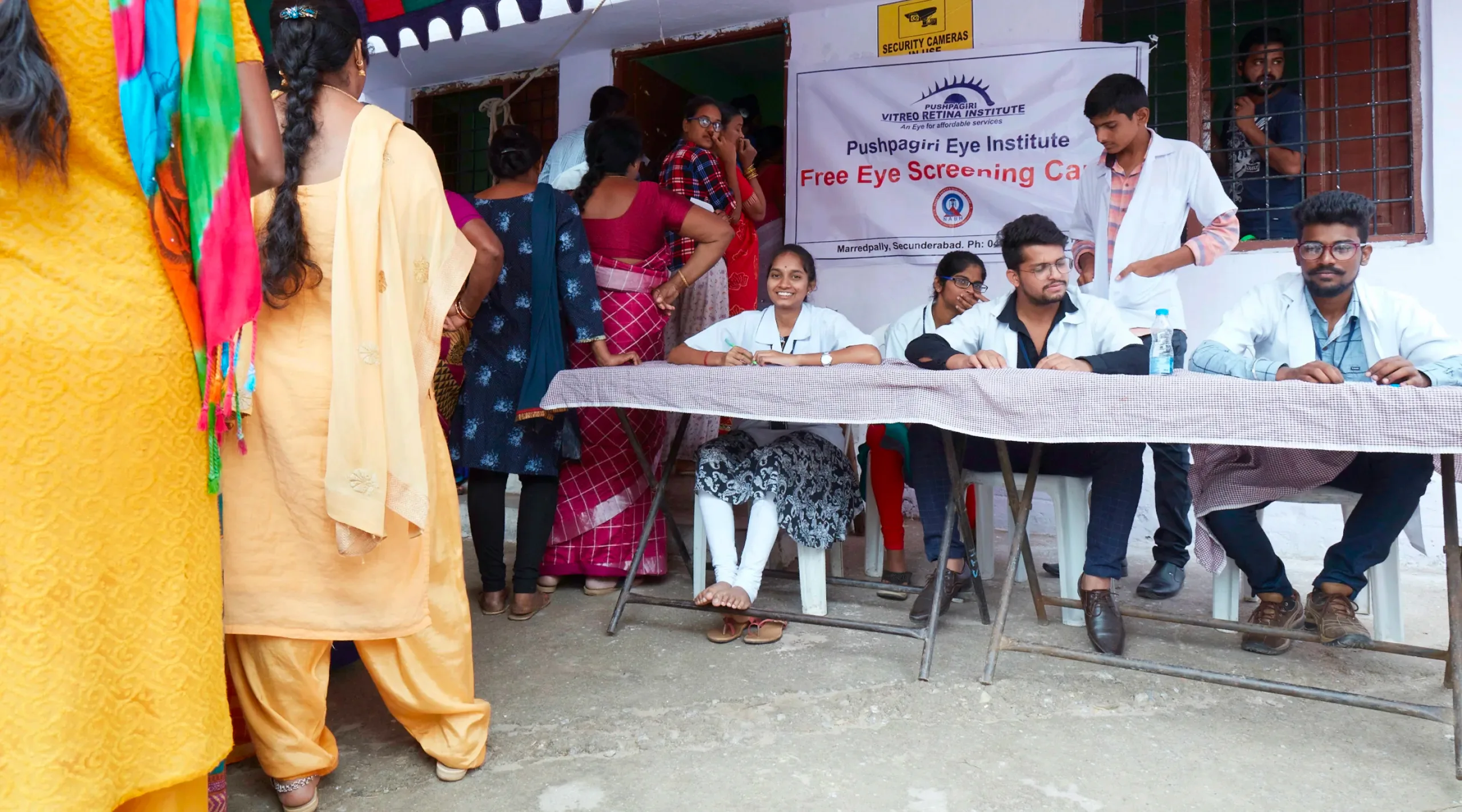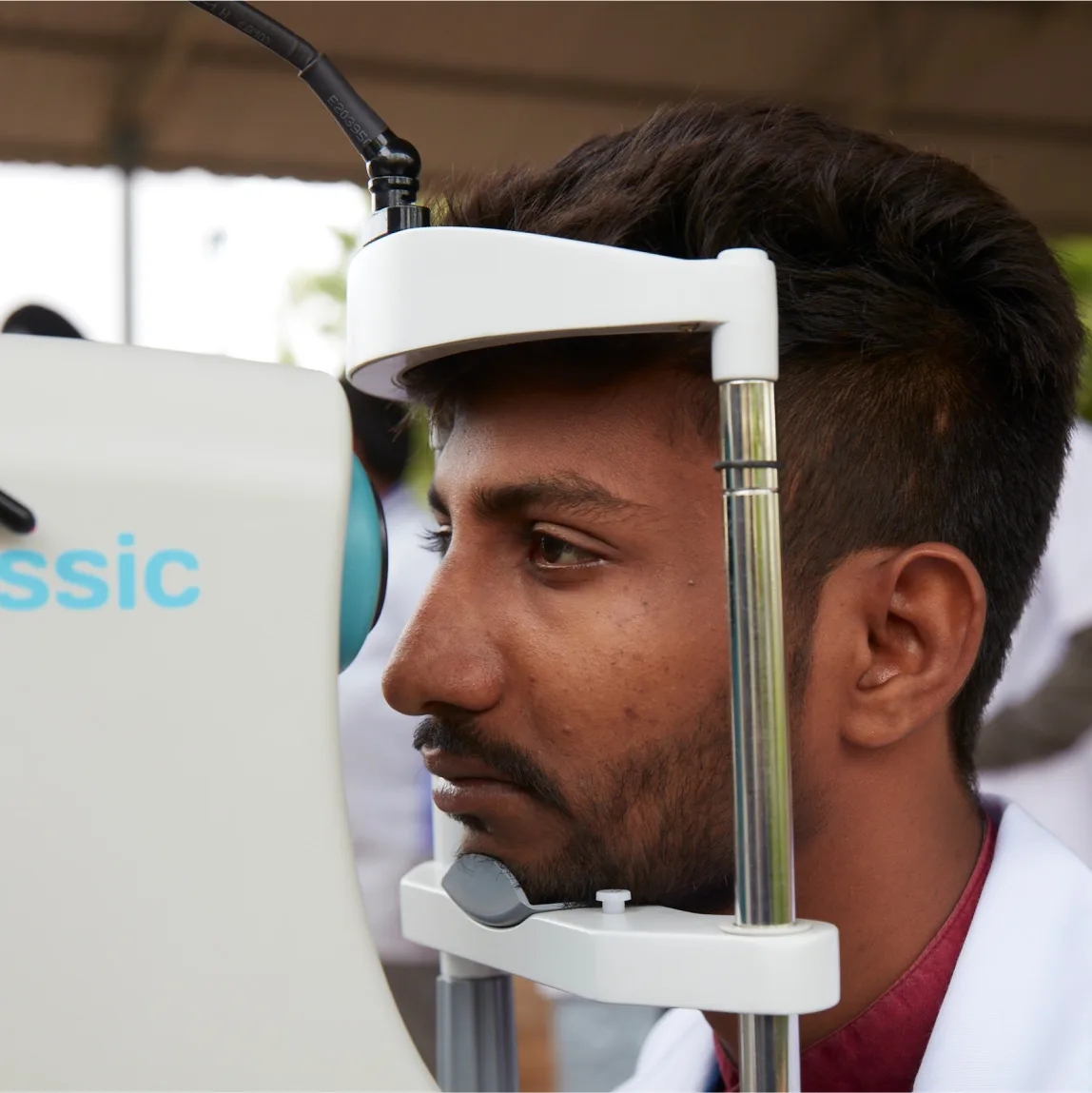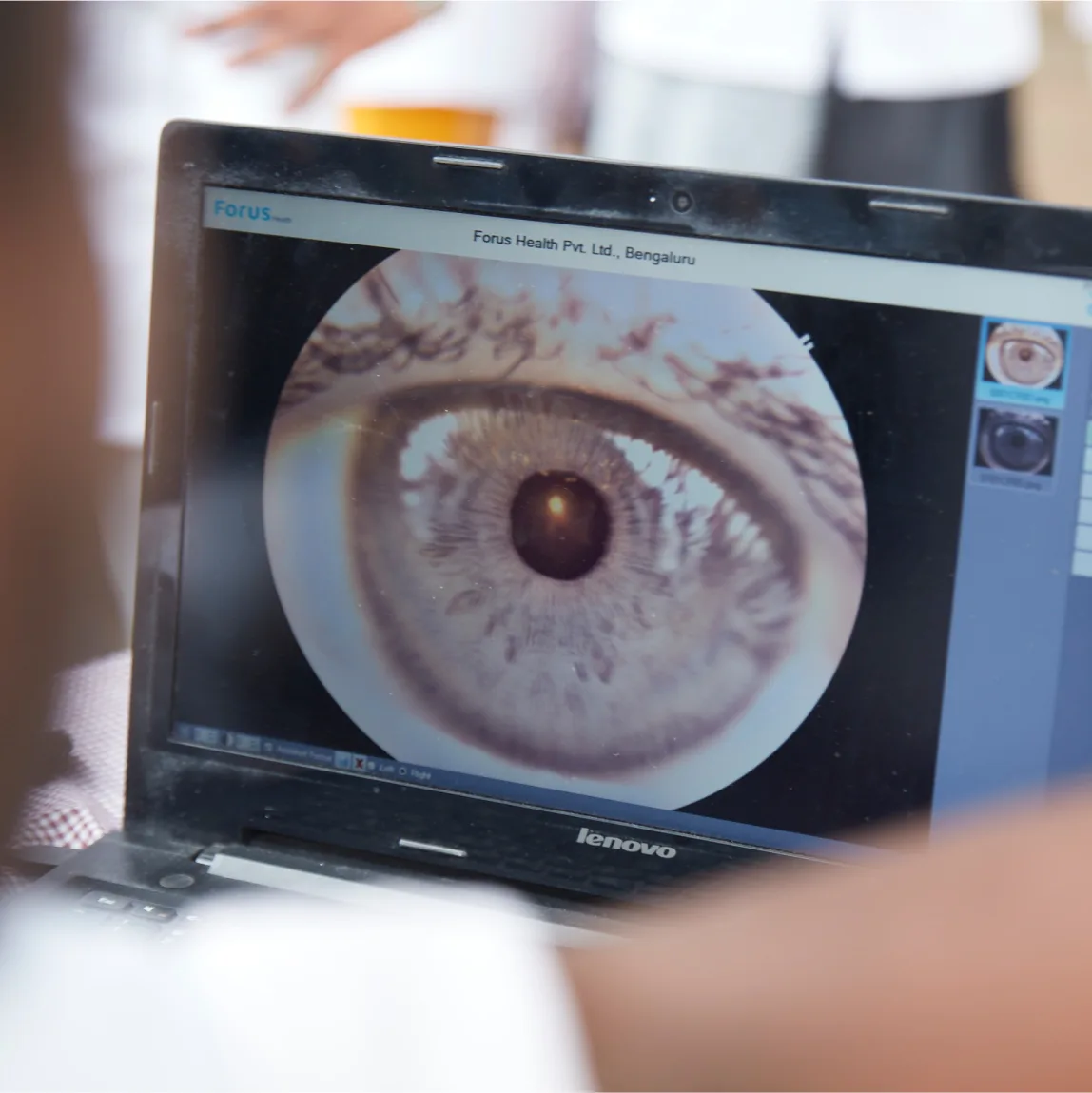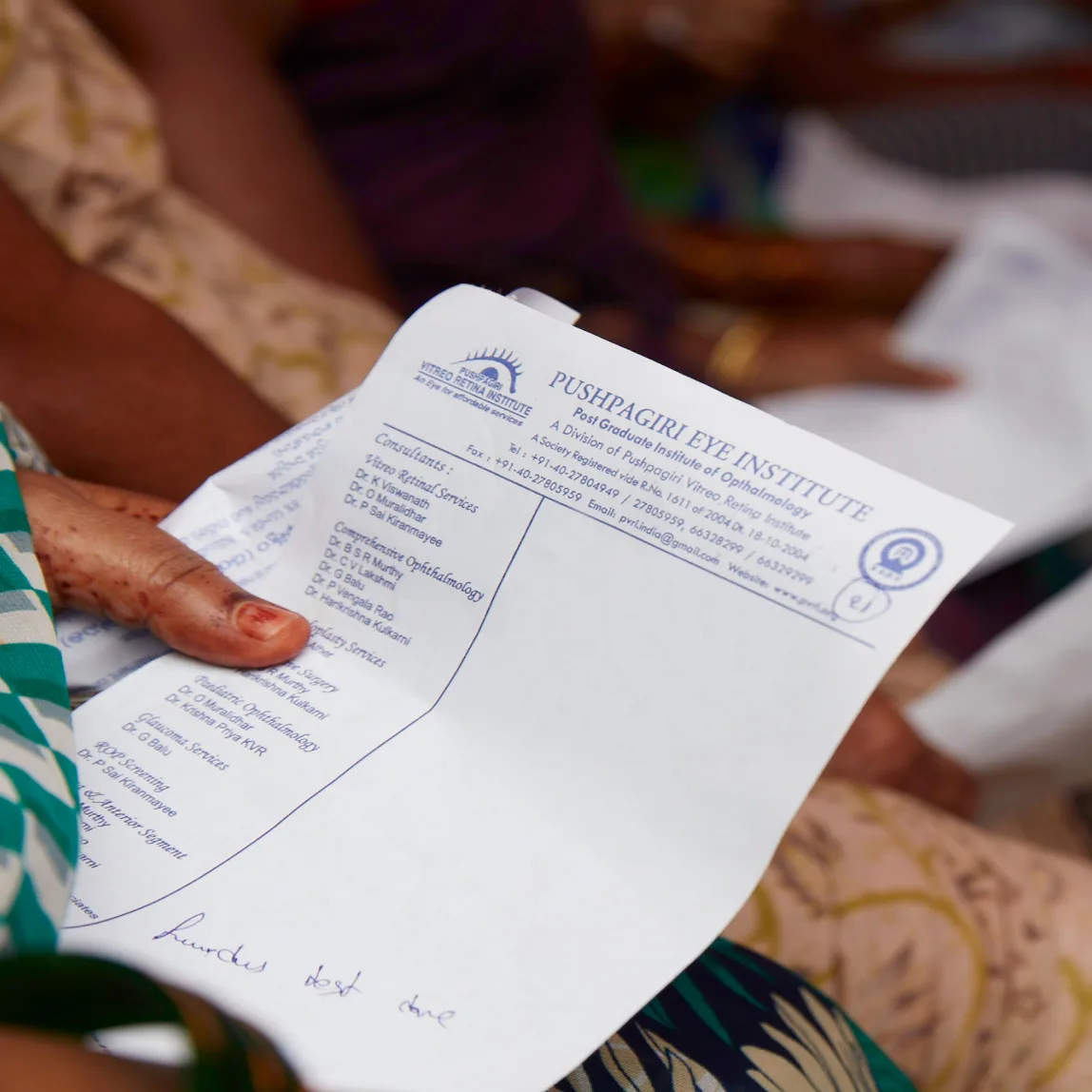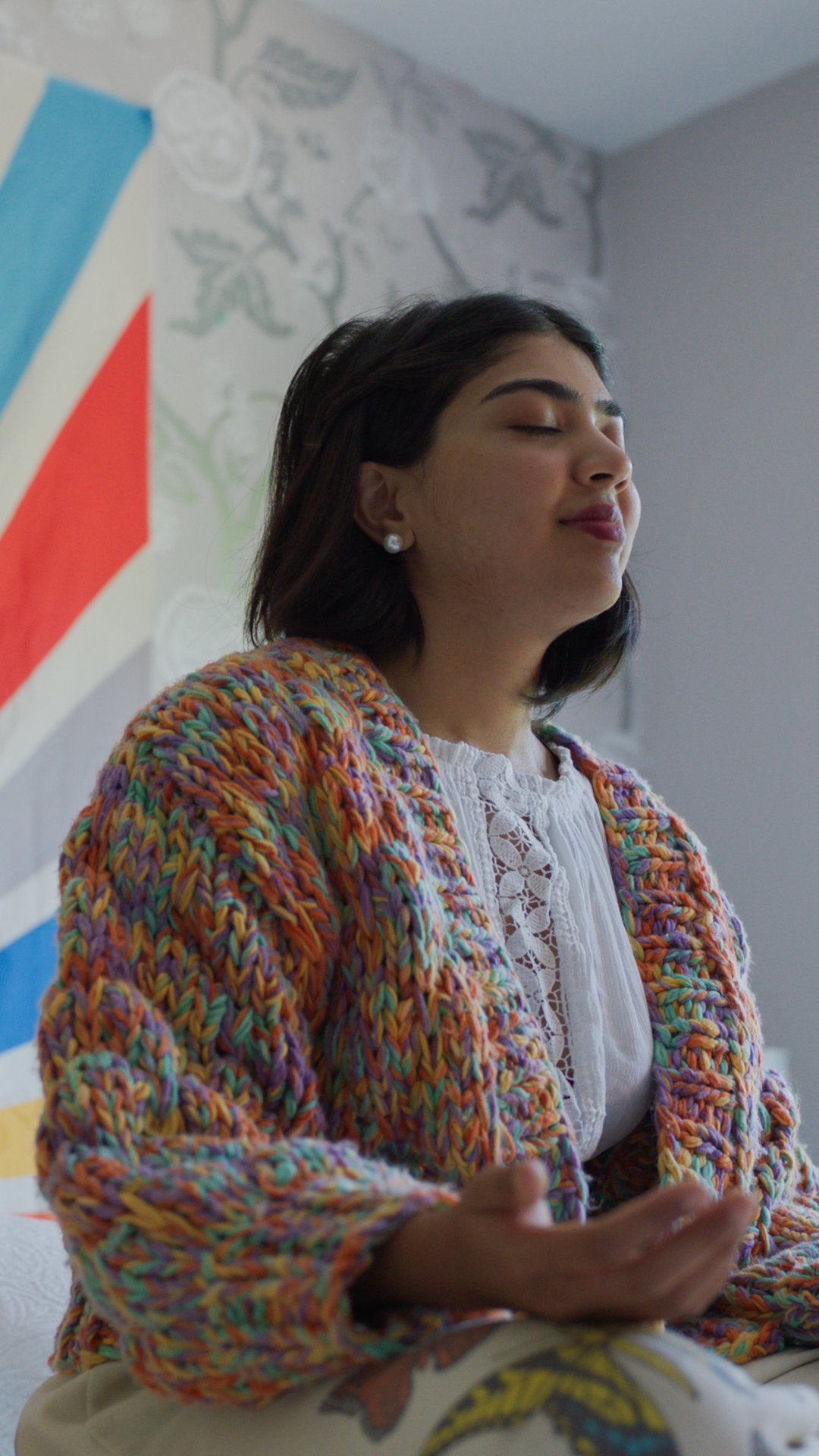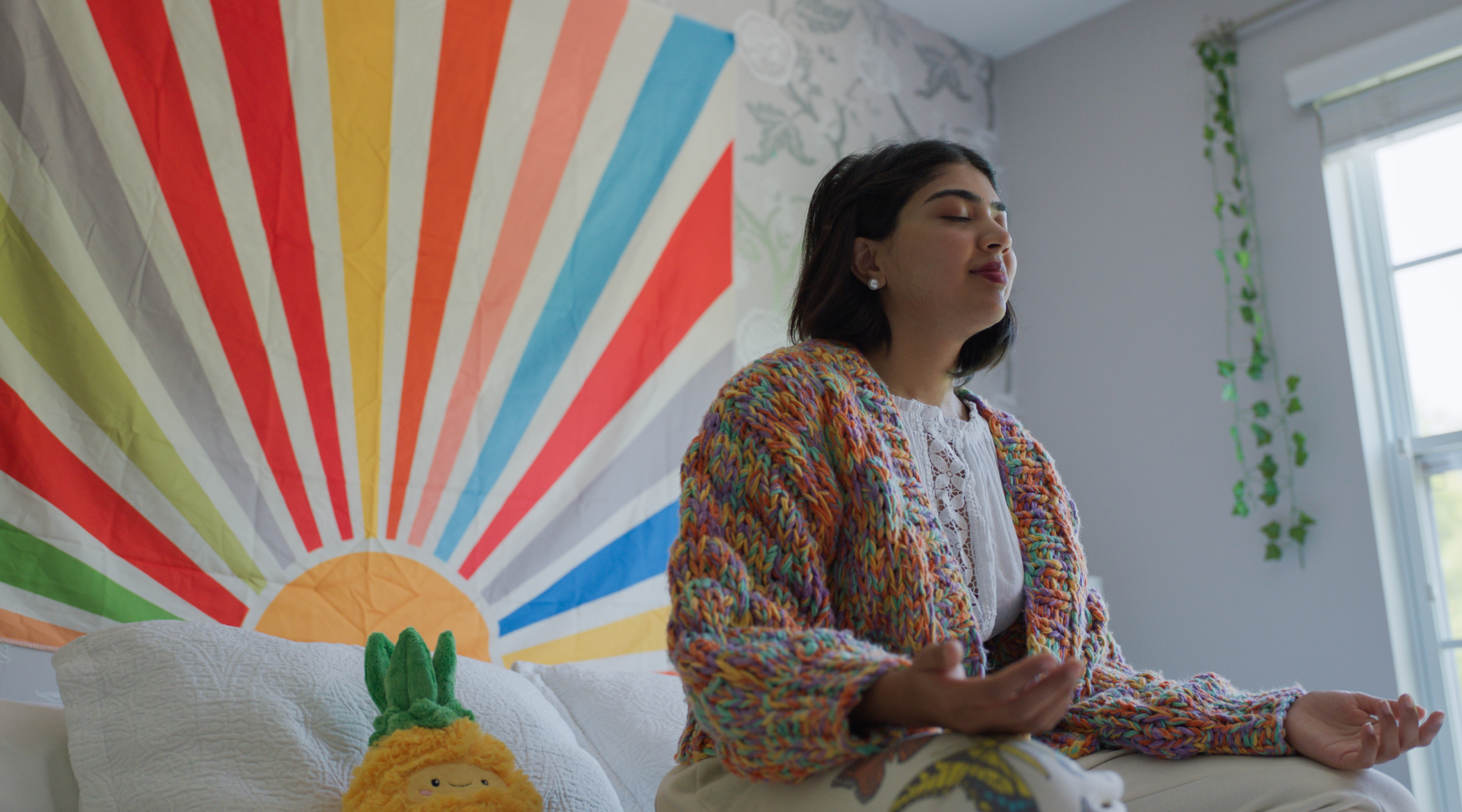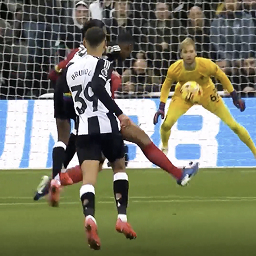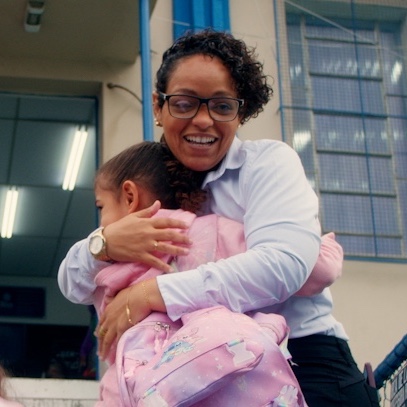The glaring sun is at its hottest, the air heavy with humidity. The street is full of tuk-tuks beeping at other cars and zooming around buses. Laughter from a group of women in bright colors cuts through the noise. Exhaust fumes compete with the fragrance of incense drifting from shops that line the sidewalk. Meat and vegetables rubbed with spices sizzle in a nearby food stand. The aroma is intoxicating.
Something’s a little different today in this village in India.
A section of it has become a pop-up eye-screening facility with hundreds of people lined up. Each is waiting for a test that could potentially save their vision. Made possible with an eye-screening device transported by a moped, the device doesn’t require a doctor to operate, and takes less than a minute. Since there are no hospitals for miles, this is the closest many have come to receiving eye care. Thousands of eyes can be tested daily because the device has brought the exam to them.
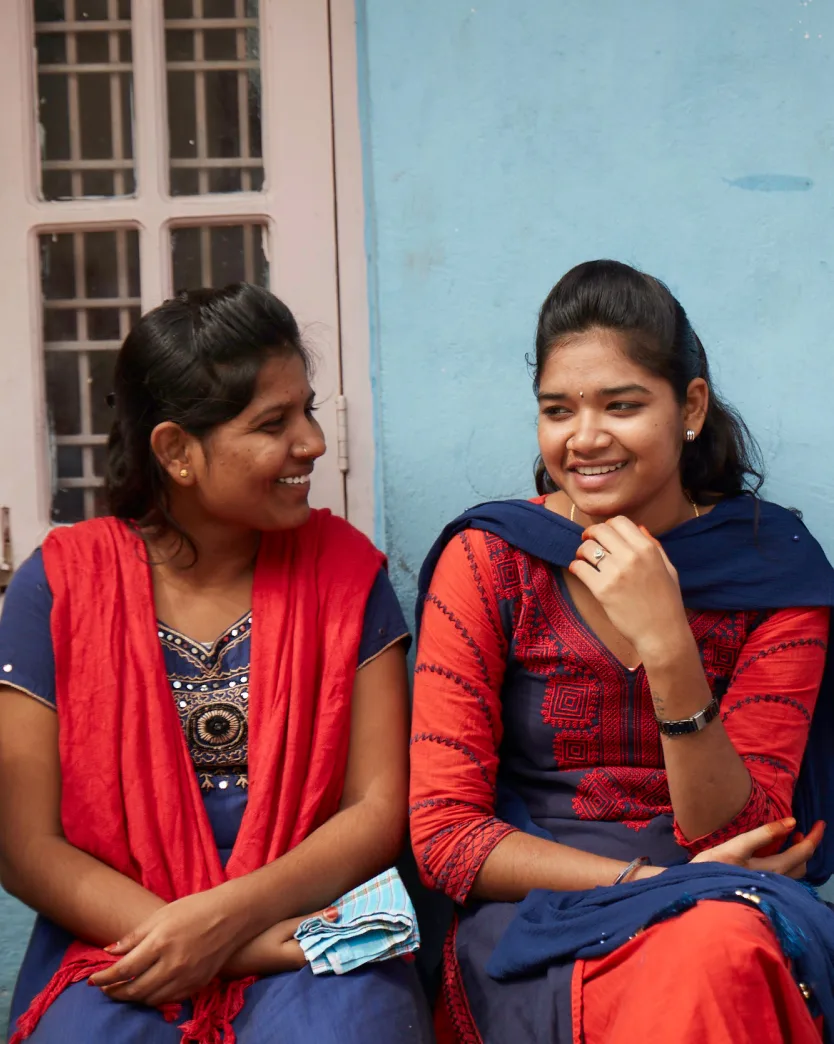
People gather early for their eye exams.
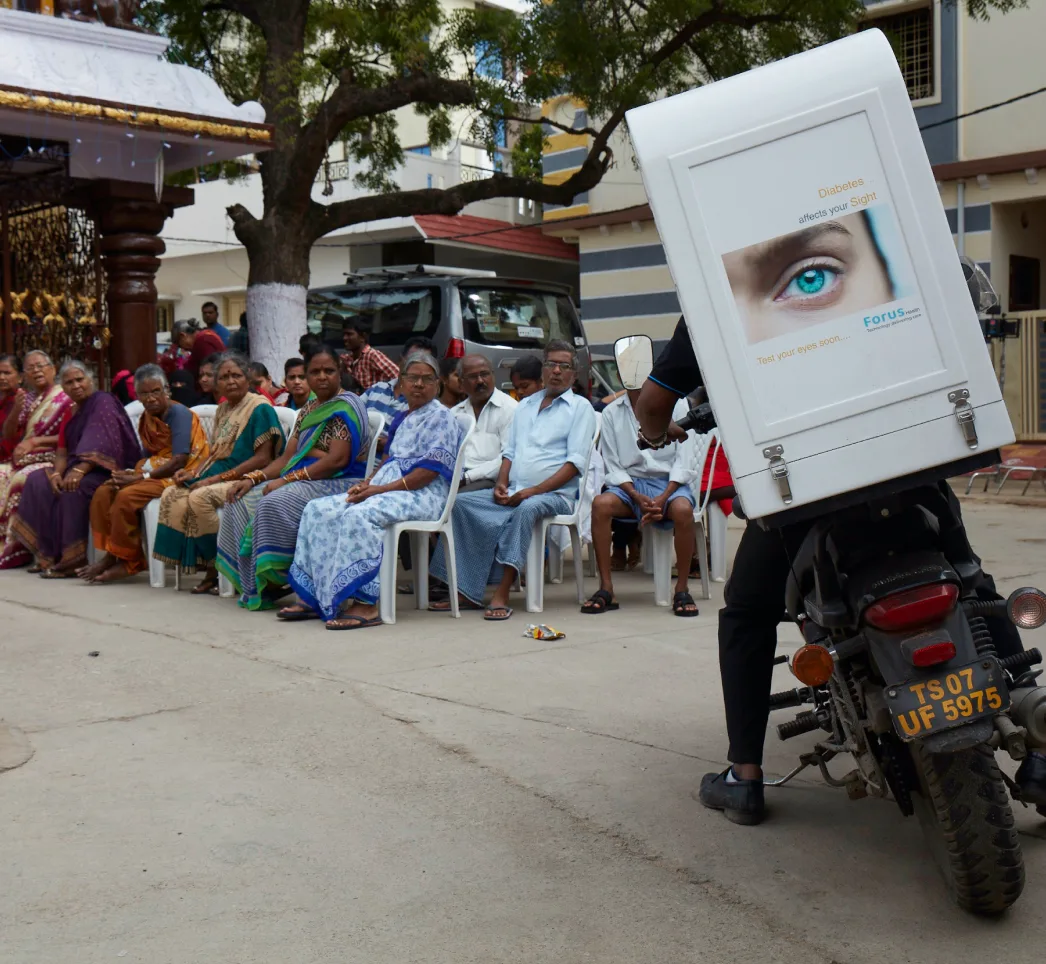
Forus’s eye scanning device can easily travel almost anywhere, via moped, and doesn’t require a doctor to operate it.
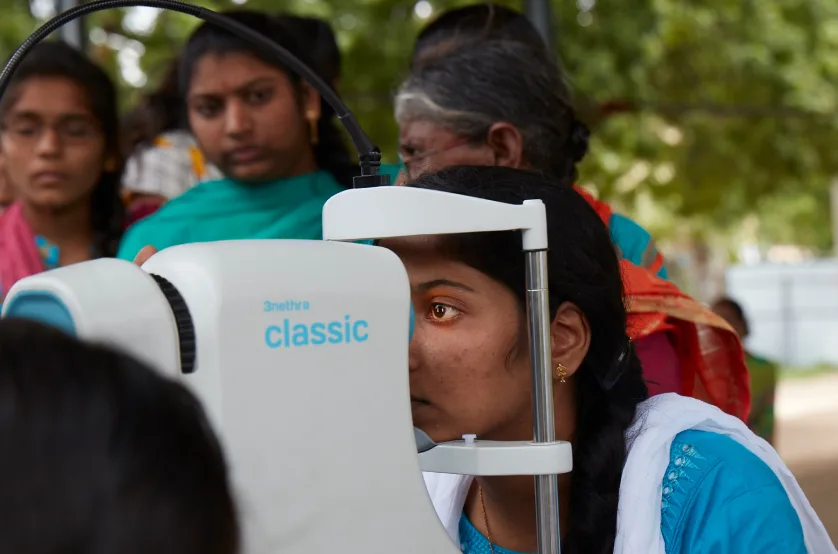
The Forus 3Nethra device, connected to the cloud, can scan and analyze eye images in about one minute.
The eye-screening device does not replace the doctor. It assists him. Screening at the doorstep ensures needy patients are sent to hospitals for treatment immediately.
In India, more than 77 million people are living with diabetes, or about nine percent of the population. This is expected to increase to about 135 million by 2045. Eye testing is essential, but few have access to ophthalmologists and optometrists. Diabetic retinopathy, a condition in which high blood sugar damages eyes and causes blindness, is a problem. However, it’s avoidable when treated in time. With just one ophthalmologist per seventy-thousand people, accessing eye care is challenging, but it’s getting easier.
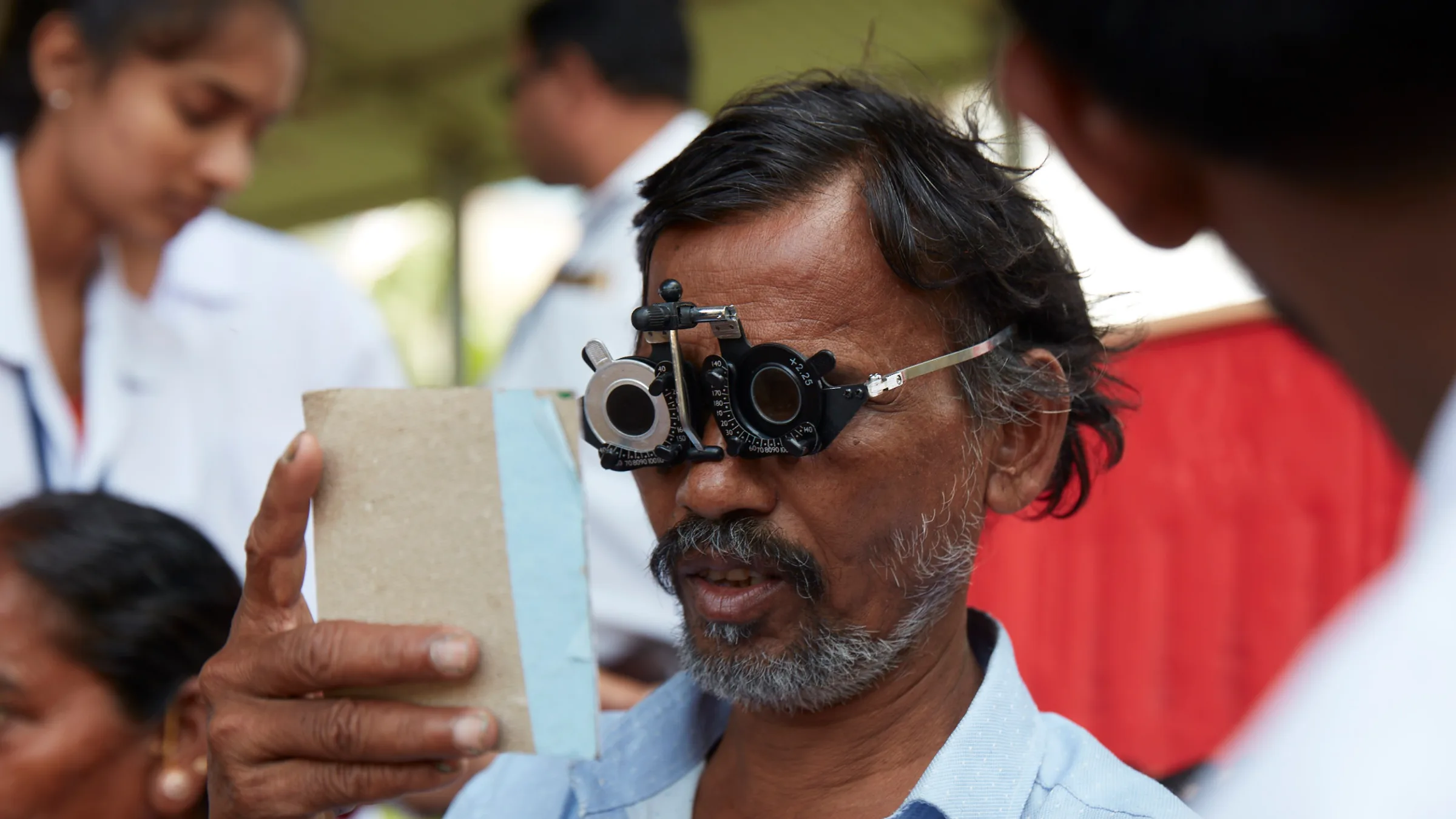
Perfecting a delicate camera
K. Chandrasekhar (KC) and his colleague Shyam Vasudev founded Forus Health in 2010 in Bangalore, India to prevent avoidable blindness on a global scale. KC had held senior management roles for over 20 years in major multinational and Indian tech companies. Though he didn’t have much experience in healthcare, he observed that eye screening devices were only available in large hospitals because of their high cost. Millions of people who needed eye exams did not have access to screenings.
The name Forus means it’s for us. For our community. We started this company with the mission of eradicating preventable blindness using technology. Our idea is to create products that reach unpenetrated communities and help democratize screening. We connect them back to the ophthalmology ecosystem, enabling timely intervention.
The power of image quality
About one and a half years after Forus Health was founded, they introduced a portable eye imaging device, the 3nethra Classic—a digital non-mydriatic retinal camera—to assist in the evaluation of visual health. Nethra means eye in Sanskrit, and the three indicates the device screens three different parts of the eye. When 3nethra began making its rounds to villages in India, KC was sure his goal of helping people had been met, but one issue was getting in the way: difficulty capturing consistent image quality in remote environments. Other challenges like operator skill and bright sunlight were inhibiting the device from capturing the un-dilated images needed for an accurate diagnosis.
In order to successfully reach the millions of people needing eye screening, Forus Health used AI and a machine learning algorithm to ensure the images were correct for analysis. Combined with the cloud, the analysis was brought where it was needed most.
“If you have bad images, the whole process is crude and wasteful,” says Prashant Gupta, Program Director of Azure Global Engineering at Microsoft. “We realized that before we start to understand disease markers, we have to solve the image quality problem.”
While Forus developed an AI algorithm to scan the eye images for complications that could lead to blindness, KC reached out to Microsoft for a partnership. KC saw Microsoft as an organization with the same interest in using technology to help people access care and improve their lives. Microsoft Azure provided a platform that enabled Forus to scale their operations. They could reach more people no matter where they were as long as there was a way to connect with the cloud. This empowered Forus Health to make a big difference on a global scale. 3nethra could be transported anywhere in the world, with clear images available for AI to analyze in seconds using Microsoft Cloud.
“AI analyzed images for gradability instantaneously, then uploaded them to the cloud for the doctor’s assessment,” says KC.
In addition to partnering with Forus Health on their cloud platform, Microsoft is helping them make the right connections to governments and partners to help ensure progress.
Image carousel
Eye exams for everyone
Forus Health has screened about 12 million people and saved about 2 million from blindness caused by diabetic retinopathy, macular degeneration, and cataracts. Millions of people globally know more about potential eyesight issues, enabling them to take preventative action to reduce their risk of blindness.
KC believes Forus Health has prevented blindness in the 2 million who opted for treatment, and he’s hoping to reach more. With over 3500 installations in over 50 countries, Forus continues to enable medical institutions to deliver timely and cost-effective treatment.
“I think when we started, we saw avoidable blindness as a huge problem in India and sought to build a solution for the Indian population. However, we found that our solution was adaptable and necessary in several other emerging markets like Southeast Asia, Africa, and developed markets like Europe and the US. It’s a phenomenal feeling to know that you’re impacting the lives of people around the world,” says KC.
The 3nethra eye-screening device can travel anywhere. And since it doesn’t require dilation, a trained operator can screen someone’s eyes in about one minute, then upload the image to Microsoft Cloud. AI analyzes these images, identifying those at risk of blindness. This process takes about three minutes per person, including registration, and can screen about 20 people per hour. About 240-300 people can be screened in one day with a single device.
AI-based retinal imaging APIs on the cloud are bringing cloud intelligence closer to the eye. Technicians can access AI-powered insights, like image quality, even in remote areas. Good images are scanned and those at risk of blindness are flagged and sent to medical professionals.
I think when we started, we saw avoidable blindness as a huge problem in India and sought to build a solution for the Indian population. However, we found that our solution was adaptable and necessary in several other emerging markets like Southeast Asia, Africa, and developed markets like Europe and the US. It’s a phenomenal feeling to know that you’re impacting the lives of people around the world.
Future vision
Forus Health continues to work with Microsoft to scale their operation to achieve their goal of overcoming other eyesight challenges like glaucoma and macular degeneration. They share the same desire to do good with technology. The journey of increasing eyecare services and eradicating preventable blindness on a global scale has only just begun.
The 3nethra Neo is another eye imaging device designed for premature babies that require neonatal care. Neo helps screen for Retinopathy for Prematurity (ROP) in premature newborns, a potentially blinding and irreversible eye disorder which is avoidable if caught and treated.
Forus Health is moving into primary care, placing devices in doctor’s offices and clinics, and developing a device for home screening. Their goal is to use scans to identify other diseases, helping more people prevent health problems before they happen.
